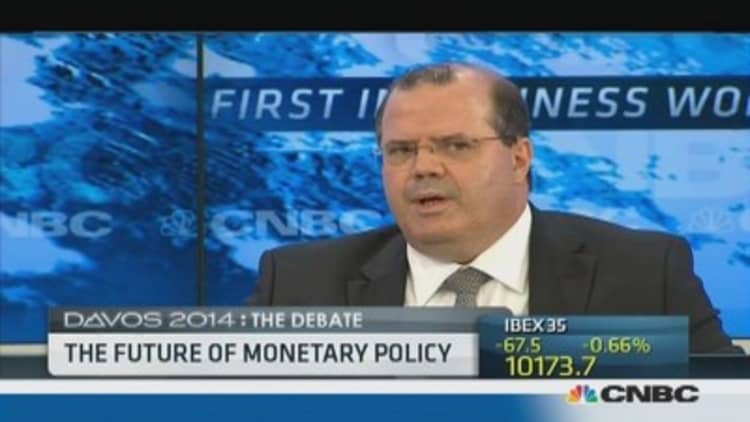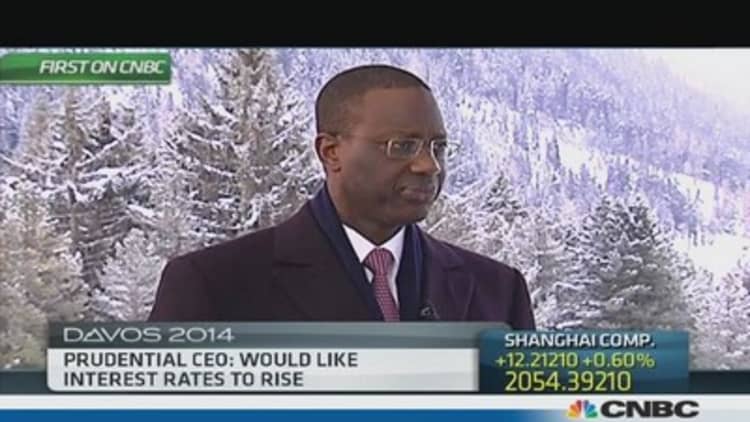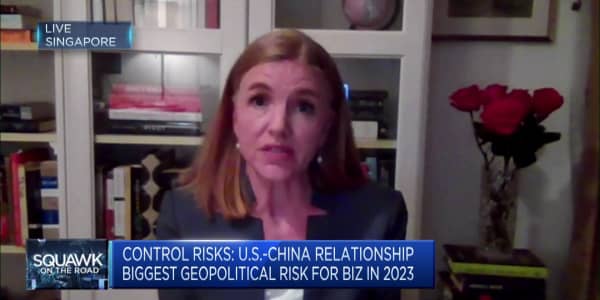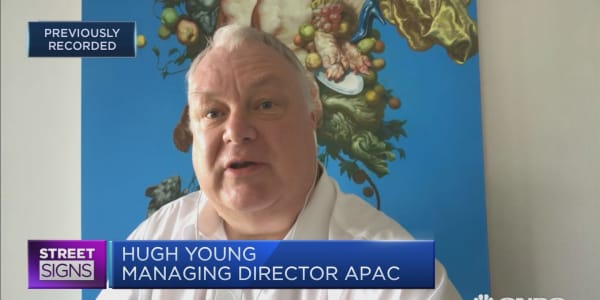Emerging-market currencies continued to take a beating on Friday amid growing worries about political upheaval, slowing growth and U.S. monetary policy, prompting central bankers and policymakers to scramble for a response.
Turkey's lira hit a new record low against the dollar, and Argentina's peso was down almost 20 percent on the week against the dollar.
Argentina's government responded by loosening strict foreign exchange controls, and the country's economy minister said Friday that the government would not permit any more devaluation. Earlier this week, Argentina's central bank abandoned its policy of intervening in the foreign exchange market, which pushed the currency lower.
The fell to a two-month low against the dollar, and traders said the central bank had intervened in the currency markets, according to Reuters.

The dollar strengthened to 2.33 against Turkey's currency, and investors piled out of the South African rand and the Indonesian rupiah, which fell to a two-week low against the dollar. Meanwhile, the , a favorite of the carry trade, fell to $0.8681—its lowest level in 3½ years.
(Read more: Could emerging markets pay the price if Abenomics fails?)
Tim Ash, head of emerging market research at Standard Bank, said people had fallen out with emerging markets.
"The story is about fundamentals—so many emerging markets have dodgy fundamentals," he told CNBC. "You've got Turkey, Brazil, Argentina, Egypt—everyone's got problems."
But he stressed that although this was the broader picture, Friday's moves were "pure contagion."
"Even the good guys that investors like—like Mexico and Poland—are being pulled lower," he added.
"Markets are taking a long, hard look at a number of vulnerable countries, notably Turkey, and don't like what they see in terms of the credibility of the policymaking regime," said Nicholas Spiro, managing director of Spiro Sovereign Strategy.
(Read more: Emerging market currencies the Fed can't touch)
Speaking at the World Economic Forum in Davos, Goldman Sachs Chairman and CEO Lloyd Blankfein said emerging market currencies were high yield, but also high risk.
The emerging market currency risk had become a macro event, he said, but stressed that over the longer term there were opportunities in emerging markets.
Spiro added: "The domestic weaknesses of emerging markets, which last year's 'taper tantrum' glaringly exposed, are becoming more pronounced."
The Federal Reserve's bond-buying program, which boosted risk sentiment and emerging market currencies since 2009, is slowly being unwound.
Speculation about Fed tapering in 2013 hit emerging markets hard, with currencies of countries including India, Turkey, Russia and Brazil coming under intense pressure in what become known as the "taper tantrum."
In a CNBC debate about the future of monetary policy at Davos, however, the governor of the Central Bank of Brazil said the winding down of U.S. stimulus was no bad thing for emerging markets.
(Read more: Sit up and take notice, Aussie pain is here to stay)
"The central bank of Brazil was one the first to say that the beginning of tapering is a global positive for the global economy, for international trade- and therefore for emerging markets, including Brazil," Alexandre Tombini said on Friday.
"So when we go through the normalization process, it will be positive for a country like Brazil."

But Benoit Anne, head of global emerging market strategy at Societe Generale, told CNBC the "panic mode" currently being seen in emerging market currencies was directly linked to the Fed.
"We have huge psychological fear that is going to emerging markets, despite a global environment that hasn't changed that much," he said.
"My bias at this stage— although it's a bold one—is that this is all about the credibility of the Fed with respect to its forward guidance. This fear that the Fed is going to tighten quicker than expected is translating into emerging markets."
The U.S. central bank has promised that it will not raise interest rates until unemployment hits 6.5 percent, but some analysts are concerned that rate hikes could come sooner than expected.
But Anne added these recent moves were likely to be more temporary.
"It's a matter of weeks rather than the whole year of 2014 as a total write-off for emerging markets," he said. "Although it will take the Fed re-establishing its credibility towards forward guidance before we see respite in emerging markets."
—By CNBC's Katrina Bishop. Follow us on Twitter @CNBCWorld.





